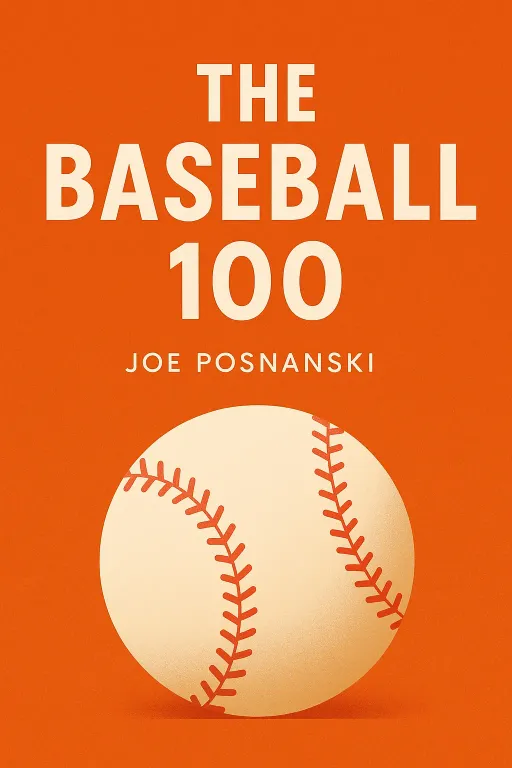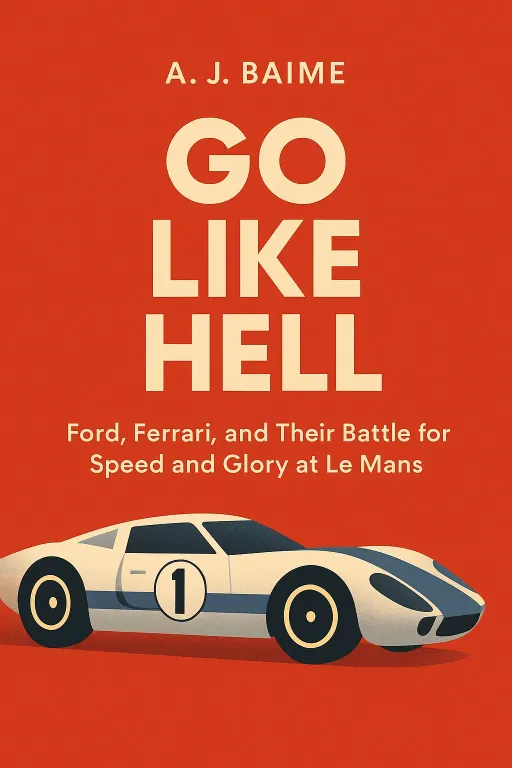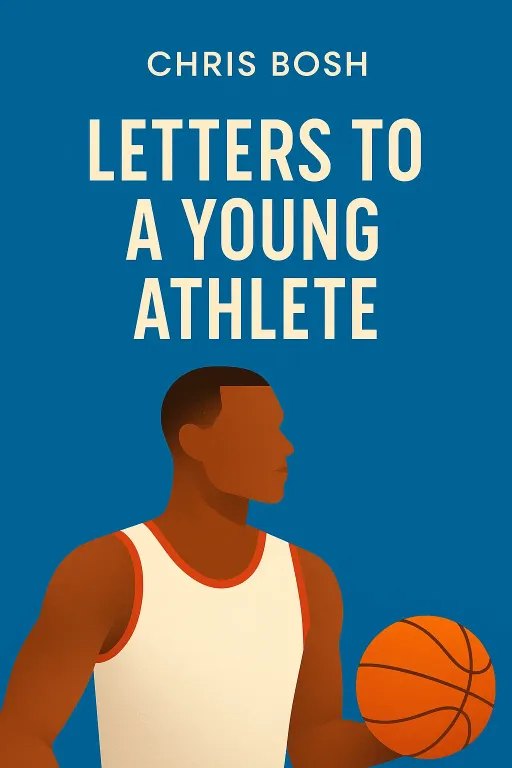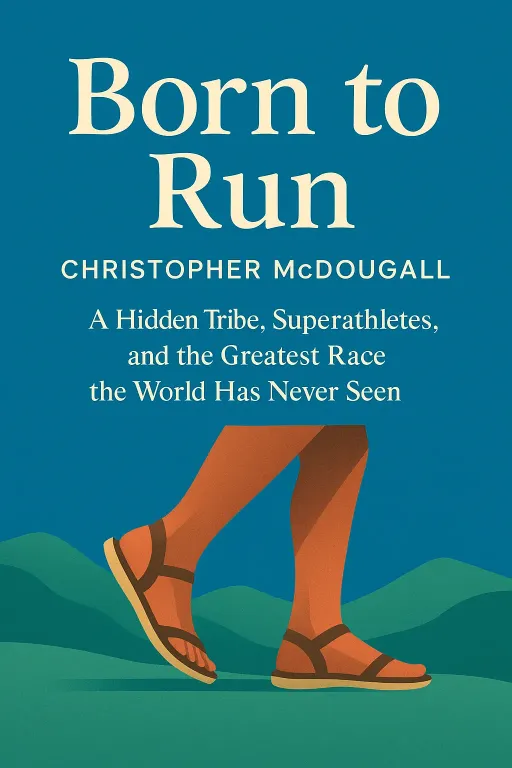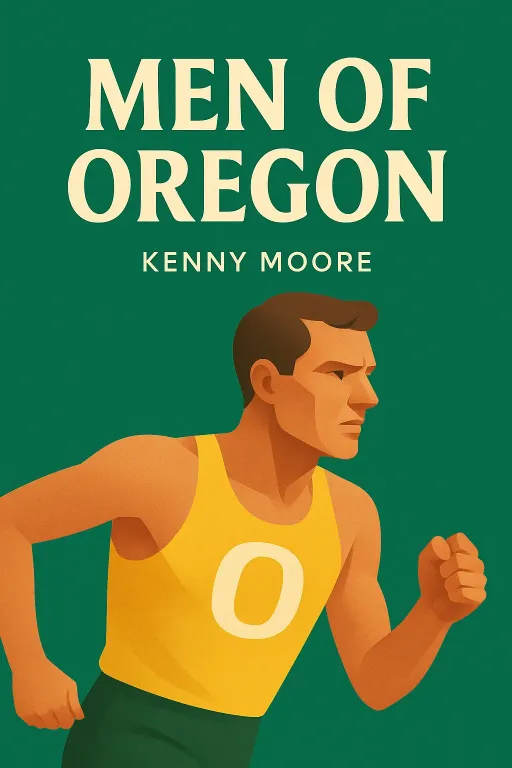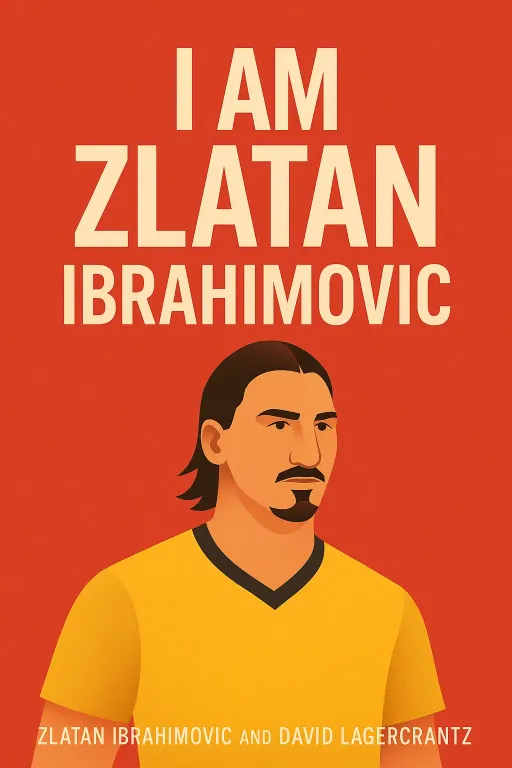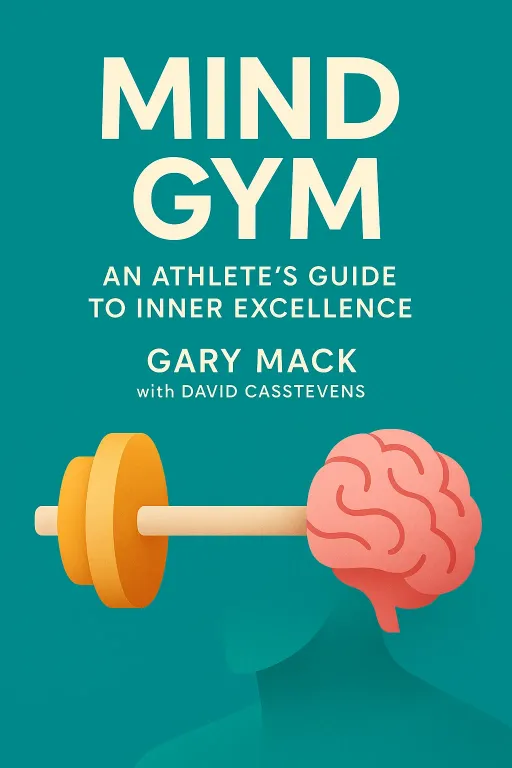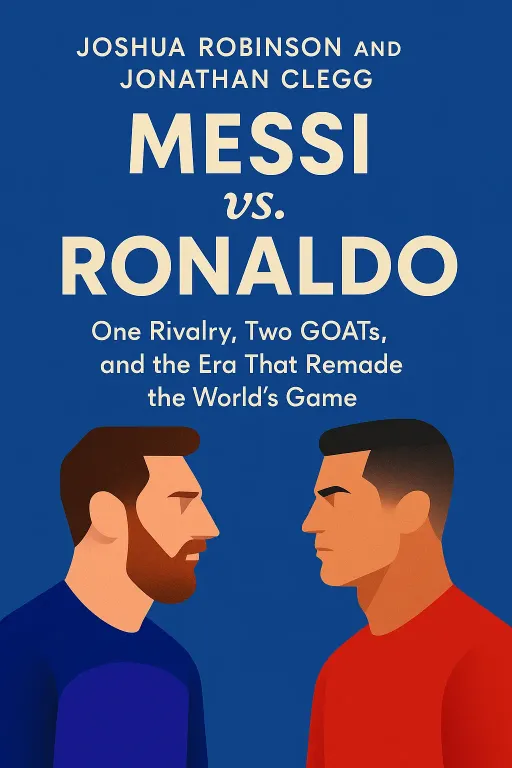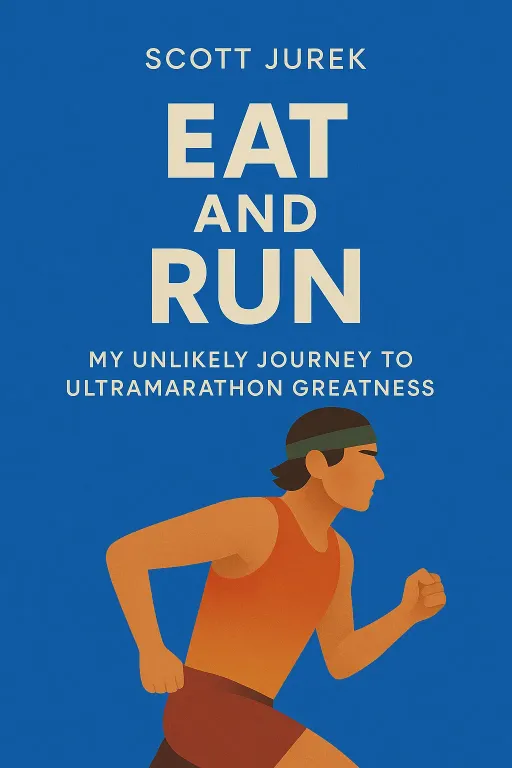
Forged by Hardship, Fueled by Plants
10 minmy unlikely journey to ultramarathon greatness
Golden Hook & Introduction
SECTION
Michael: Alright Kevin, I'm going to say the title of a book: Eat and Run. What's the first image that pops into your head? Kevin: Easy. Someone stealing a hot dog from a street vendor and making a mad dash for it. A petty crime, not a New York Times bestseller. Michael: That's a surprisingly specific and slightly criminal image. But you're right about the bestseller part. Today we’re diving into Eat and Run: My Unlikely Journey to Ultramarathon Greatness by Scott Jurek. Kevin: Scott Jurek... the name sounds familiar. Isn't he like, the Michael Jordan of running absurdly long distances? The kind of guy who considers a marathon a light warm-up? Michael: That's the one. He's an absolute legend in the ultrarunning world. To put it in perspective, he won the Western States 100-Mile Endurance Run—one of the most brutal and prestigious ultramarathons on the planet—seven consecutive times. Kevin: Seven times? In a row? That doesn't even sound human. What was his secret? Some kind of super-soldier serum? Michael: That's the fascinating part. His secret, and what made his story so revolutionary and, frankly, controversial at the time, is that he did it all while being 100% vegan. He completely upended the sports nutrition world. Kevin: Okay, now I'm hooked. A vegan athlete dominating a sport that's all about grueling, punishing endurance. That feels like a contradiction. Michael: It does. But before he was this vegan running god, he was just a kid from Minnesota, and that's where the real story begins. What do you think forges someone who can run 100 miles for fun?
The Unlikely Forge: How Hardship Crafted an Endurance Monster
SECTION
Kevin: My guess would be some combination of incredible natural talent and a training regimen that would make a Navy SEAL cry. Just thousands of hours on the trail. Michael: You'd think so, but Jurek argues his most important training happened long before he ever laced up a pair of running shoes. It happened in his backyard in Proctor, Minnesota. His family life was tough. His mother was diagnosed with multiple sclerosis when he was young, and his father was a stern, hardworking man with a very particular philosophy. Kevin: What kind of philosophy? Michael: It was simple. Jurek and his siblings had endless, back-breaking chores. Stacking massive piles of firewood for the winter, weeding the garden for hours, picking rocks out of the soil. Whenever he'd complain, his dad would just look at him and say, "Sometimes you just do things." Kevin: "Sometimes you just do things." That sounds like the least motivational slogan ever. It’s so… bleak. Michael: It is! But think about it. It's the ultimate lesson in enduring thankless, repetitive, painful work without a clear reward. It's about detaching from the discomfort and just getting the job done. He was unknowingly training his mind to endure monotony and suffering for hours on end. That is the very essence of ultrarunning. Kevin: Huh. So you're saying the mental calluses he built doing chores were more important than the physical ones he'd later get from running? Michael: Precisely. Let me paint a picture for you from the book. It's the 2005 Badwater Ultramarathon. This is a 135-mile race through Death Valley in the middle of July. The pavement temperature can hit 200 degrees Fahrenheit. Kevin: That's not a race, that's a science experiment to see if humans can spontaneously combust. Michael: It might as well be. And at mile 70, Scott Jurek, this champion of champions, is on the side of the road, collapsed in the dirt. He's vomiting uncontrollably, his body is shutting down, and he can't hold down any food or water. He's done. He's ready to quit. Kevin: Whoa, hold on. This is the seven-time champ, and he's face-down in the dirt? How does stacking wood help you there? That feels like a moment where your body just gives out, no matter how tough your mind is. Michael: This is the critical moment. His support crew is trying to help, giving him gentle encouragement. Nothing works. Then his old friend and pacer, a guy named Dusty Olson, shows up. And Dusty doesn't coddle him. He gets in Jurek's face and just screams at him. Kevin: What does he say? Michael: The book quotes him directly. He yells, "You're not gonna win this fucking race lying down in the dirt. C'mon, Jurker, get the fuck up." It's brutal. It's harsh. But it's exactly what Jurek's mind was programmed to respond to. Kevin: It's his dad's voice. Michael: It's his dad's voice. It's the voice of "Sometimes you just do things." It's not about feeling good. It's not about inspiration. It's about getting up and moving, period. And Jurek gets up. He starts walking, then jogging. He doesn't win that race, but he finishes it, which many thought was impossible after that collapse. That mental fortitude wasn't built on a scenic trail; it was forged in the cold Minnesota woods with an axe in his hand. Kevin: That's incredible. It reframes the whole idea of what "training" is. It's not just about the sport itself, but about building a mind that can withstand pressure from any direction. Michael: Exactly. He learned to suffer long before he learned to run.
The Engine's Secret Fuel: The Plant-Based Performance Revolution
SECTION
Kevin: Okay, so his mind is a fortress built by a tough childhood. But a fortress still needs fuel. How did he power this machine, especially when he made that radical switch to a vegan diet? That seems like the biggest leap of all. Michael: It was a huge leap, and it wasn't an overnight decision. He grew up on a classic Midwestern diet—meat, potatoes, casseroles. His mom was a great cook, and food was tied to comfort and family. The idea of giving up meat was completely alien to him. Kevin: So what was the catalyst? Michael: It was a slow burn, influenced by a few key people and experiences. He meets his future wife, Leah, who is a vegetarian. He befriends a local running legend nicknamed "Hippie Dan," who introduces him to books about agriculture and mindful eating. But the real turning point, the story he tells in the book, is what I call the "Vegetarian Chili Epiphany." Kevin: The Vegetarian Chili Epiphany? I love it. Tell me more. Michael: He's out with his ski buddies after a long, cold day of training. They usually go for burgers and beers. But this time, they end up at a microbrewery, and someone suggests he try the vegetarian chili. He's skeptical, but he goes for it. And he's blown away. It's hearty, it's flavorful, and it has a texture just like beef chili because it was made with bulgur wheat. Kevin: A-ha! The gateway dish. Michael: The gateway dish! It was this moment of realizing that plant-based food didn't have to be bland or unsatisfying. It could be robust and delicious. That small experience opened the door for him to start experimenting. Kevin: But experimenting is one thing. Going full-on vegan while competing at the highest level of sport is another. This is where a lot of people get skeptical, right? The whole "where do you get your protein?" debate. How did he, an elite athlete, actually answer that? Michael: That's the core of the book's controversy and its power. When he showed up for his first Western States 100 in 1999, he was an unknown "flatlander" from Minnesota. The other elite runners were these grizzled "mountain men" who thought he was a joke. They saw this skinny guy eating weird food and figured he'd burn out in the first 30 miles. Kevin: They underestimated him. Michael: Massively. What they didn't understand was that his plant-based diet was his secret weapon. While they were fueling with traditional high-fat, heavy foods, Jurek was consuming whole foods—grains, legumes, fruits, vegetables. His body wasn't wasting energy digesting heavy meals, and his recovery was off the charts. The diet was naturally anti-inflammatory, so while other runners' bodies were breaking down over the 100 miles, his was recovering faster. Kevin: So the very thing they mocked him for was his competitive edge. Michael: Precisely. He won that race, and then he won it again, and again, for seven straight years. He proved that not only could you survive on a plant-based diet, you could thrive and dominate. He addresses the protein question head-on in the book. He explains that the average American eats almost double the protein they need, and that a well-planned vegan diet full of things like lentils, beans, tofu, and quinoa provides more than enough protein for even an elite athlete. Kevin: And he makes it practical, right? The extended info mentioned the book was even nominated for a cookbook award. Michael: Yes, that's what makes it so accessible. Every chapter ends with one of his favorite vegan recipes. He gives you the philosophy, the dramatic race story, and then the literal recipe for the fuel he used. It’s not just theory; it's a user's manual. He offers recipes for Lentil-Mushroom Burgers, Minnesota Winter Chili, and energy-boosting smoothies. He's showing you exactly how it's done.
Synthesis & Takeaways
SECTION
Kevin: It’s fascinating how these two parts of his life are so deeply connected. The stoic, "just do things" mindset from his childhood, and the meticulous, "rethink everything" approach to his diet. Michael: That's the perfect synthesis. Jurek's story shows that elite performance isn't just about the body or the training schedule; it's a complete system. It's the mental resilience forged in adversity, which allows you to push through unimaginable pain, combined with the optimal, clean, anti-inflammatory fuel that allows your body to perform and recover at a level others can't. One without the other wouldn't have created the legend. Kevin: So it's not just 'eat and run.' It's 'suffer and learn,' then 'eat and run.' The 'eating' part only works because of the mental foundation he built. You can have the best fuel in the world, but if your engine's programming tells you to quit at the first sign of trouble, it doesn't matter. Michael: Exactly. And I think the biggest takeaway from the book isn't necessarily a call for everyone to run 100 miles or go completely vegan, though he makes a compelling case for it. It's a challenge to look at the 'unseen training' in our own lives. Kevin: What do you mean by 'unseen training'? Michael: The difficult things we endure—the tough job, the family struggles, the daily grind. Jurek's story teaches us that those hardships aren't just obstacles; they can be the very things that are forging our resilience. And it's a challenge to question the conventional wisdom about what fuels us, whether that's the food we eat, the information we consume, or the motivations we follow. Kevin: I like that. It’s about finding the hidden strength in your own story and being more intentional about what you use to power yourself forward. A really powerful message. Michael: It really is. It’s a story about pushing limits, but more than that, it’s about understanding where the strength to push those limits truly comes from. Kevin: We'd love to hear what you think. What's the 'unseen training' that shaped you? Or have you ever had a 'vegetarian chili' moment that completely changed your perspective on something? Find us on our socials and join the conversation. Michael: This is Aibrary, signing off.
